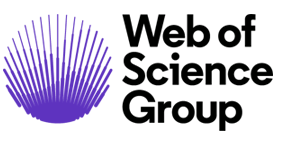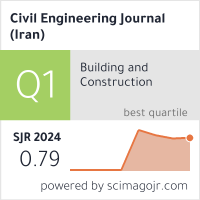Analysis of Barrier Factors for Collaboration in Handling Used Cell Phones for Second-hand Market Actors to Implement e-waste Management
Downloads
Doi:10.28991/CEJ-2023-09-03-011
Full Text:PDF
Downloads
[2] Shkileva, A. (2021). Implementation of a Degassing System at the MSW Landfill. Civil Engineering Journal, 7(6), 1008-1014. doi:10.28991/cej-2021-03091706.
[3] Gutberlet, J., & Baeder, A. M. (2008). Informal recycling and occupational health in Santo André, Brazil. International Journal of Environmental Health Research, 18(1), 1–15. doi:10.1080/09603120701844258.
[4] Katusiimeh, M. W., Burger, K., & Mol, A. P. J. (2013). Informal waste collection and its co-existence with the formal waste sector: The case of Kampala, Uganda. Habitat International, 38(1), 1–9. doi:10.1016/j.habitatint.2012.09.002.
[5] Ezeah, C., Fazakerley, J. A., & Roberts, C. L. (2013). Emerging trends in informal sector recycling in developing and transition countries. Waste Management, 33(11), 2509–2519. doi:10.1016/j.wasman.2013.06.020.
[6] Ardi, R., & Leisten, R. (2016). Assessing the role of informal sector in WEEE management systems: A System Dynamics approach. Waste Management, 57, 3–16. doi:10.1016/j.wasman.2015.11.038.
[7] Alblooshi, B. G. K. M., Ahmad, S. Z., Hussain, M., & Singh, S. K. (2022). Sustainable management of electronic waste: Empirical evidences from a stakeholders' perspective. Business Strategy and the Environment, 31(4), 1856–1874. doi:10.1002/bse.2987.
[8] Liang, L. (2021). Consumer Attitudes toward E-Waste Reuse and Recycling in Selected Villages in Thailand, Vietnam, Japan, and China. Journal of Solid Waste Technology and Management, 47(4), 696–704. doi:10.5276/JSWTM/2021.696.
[9] Dayaday, M. G., & Galleto, F. A. (2022). Electronic Waste (E-Waste) Management of Higher Education Institutions in South Central Mindanao, Philippines. Environment and Natural Resources Journal, 20(5), 534–542. doi:10.32526/ennrj/20/202200053.
[10] Attia, Y., Soori, P. K., & Ghaith, F. (2021). Analysis of households' e-waste awareness, disposal behavior, and estimation of potential waste mobile phones towards an effective e-waste management system in Dubai. Toxics, 9(10), 236. doi:10.3390/toxics9100236.
[11] de Oliveira Neto, J. F., Monteiro, M., Silva, M. M., Miranda, R., & Santos, S. M. (2022). Household practices regarding e-waste management: A case study from Brazil. Environmental Technology and Innovation, 28, 102723. doi:10.1016/j.eti.2022.102723.
[12] Laha, S. (2022). Governing the network: Trust in E-waste informality in India. Geoforum, 134, 1–12. doi:10.1016/j.geoforum.2022.05.016.
[13] Kahhat, R., Miller, T. R., Ojeda-Benitez, S., Cruz-Sotelo, S. E., Jauregui-Sesma, J., & Gusukuma, M. (2022). Proposal for used electronic products management in Mexicali. Resources, Conservation and Recycling Advances, 13, 200065. doi:10.1016/j.rcradv.2022.200065.
[14] Abdulrahman, M. D., Gunasekaran, A., & Subramanian, N. (2014). Critical barriers in implementing reverse logistics in the Chinese manufacturing sectors. International Journal of Production Economics, 147(Part B), 460–471. doi:10.1016/j.ijpe.2012.08.003.
[15] Bouzon, M., Govindan, K., & Rodriguez, C. M. T. (2018). Evaluating barriers for reverse logistics implementation under a multiple stakeholders' perspective analysis using grey decision making approach. Resources, Conservation and Recycling, 128, 315–335. doi:10.1016/j.resconrec.2016.11.022.
[16] Ghazilla, R. A. R., Sakundarini, N., Abdul-Rashid, S. H., Ayub, N. S., Olugu, E. U., & Musa, S. N. (2015). Drivers and Barriers Analysis for Green Manufacturing Practices in Malaysian SMEs: A Preliminary Findings. Procedia CIRP, 26, 658–663. doi:10.1016/j.procir.2015.02.085.
[17] Henriques, J., & Catarino, J. (2016). Motivating towards energy efficiency in small and medium enterprises. Journal of Cleaner Production, 139, 42–50. doi:10.1016/j.jclepro.2016.08.026.
[18] Ismail, H., & Hanafiah, M. M. (2021). Evaluation of e-waste management systems in Malaysia using life cycle assessment and material flow analysis. Journal of Cleaner Production, 308, 127358. doi:10.1016/j.jclepro.2021.127358.
[19] Meath, C., Linnenluecke, M., & Griffiths, A. (2016). Barriers and motivators to the adoption of energy savings measures for small- and medium-sized enterprises (SMEs): the case of the Climate Smart Business Cluster program. Journal of Cleaner Production, 112, 3597–3604. doi:10.1016/j.jclepro.2015.08.085.
[20] Nordin, N., Ashari, H., & Hassan, M. G. (2014). Drivers and barriers in sustainable manufacturing implementation in Malaysian manufacturing firms. 2014 IEEE International Conference on Industrial Engineering and Engineering Management, Selangor, Malaysia. doi:10.1109/ieem.2014.7058726.
[21] Trianni, A., Cagno, E., & Farnè, S. (2014). An empirical investigation of barriers, drivers and practices for energy efficiency in primary metals manufacturing SMEs. Energy Procedia, 61, 1252–1255. doi:10.1016/j.egypro.2014.11.1071.
[22] Luo, Y., & Qi, L. (2020). Evaluation of implementation and operation mode of conservation planning of historic villages in the Pearl River Delta. Journal of Asian Architecture and Building Engineering, 19(4), 327–340. doi:10.1080/13467581.2020.1748039.
[23] Yeni, O., & Teoman, Ö. (2022). The Agriculture-Environment Relationship and Environment-based Agricultural Support Instruments in Turkey. European Review, 30(2), 194–218. doi:10.1017/S1062798720001015.
[24] Hren, L. M., Naden V, E., Aliieva I, P., Husarov, K. A., Stankevych V, S., Koroleva, E. N., & Matsyura V, M. (2021). The public administration and environmental tourism. Ukrainian Journal of Ecology, 11(2), 191–194.
[25] Kumar, A., & Dixit, G. (2018). Evaluating critical barriers to implementation of WEEE management using DEMATEL approach. Resources, Conservation and Recycling, 131, 101–121. doi:10.1016/j.resconrec.2017.12.024.
[26] Kumar, A., & Dixit, G. (2018). An analysis of barriers affecting the implementation of e-waste management practices in India: A novel ISM-DEMATEL approach. Sustainable Production and Consumption, 14, 36–52. doi:10.1016/j.spc.2018.01.002.
[27] Zhang, B., Wang, Z., Yin, J., & Su, L. (2012). CO2 emission reduction within Chinese iron & steel industry: Practices, determinants and performance. Journal of Cleaner Production, 33, 167–178. doi:10.1016/j.jclepro.2012.04.012.
[28] Zhang, B., & Wang, Z. (2014). Inter-firm collaborations on carbon emission reduction within industrial chains in China: Practices, drivers and effects on firms' performances. Energy Economics, 42, 115–131. doi:10.1016/j.eneco.2013.12.006.
[29] Mell, I. (2020). The impact of austerity on funding green infrastructure: A DPSIR evaluation of the Liverpool Green & Open Space Review (LG&OSR), UK. Land Use Policy, 91, 104284. doi:10.1016/j.landusepol.2019.104284.
[30] Ravi, V., & Shankar, R. (2017). An ISM-based approach analyzing interactions among variables of reverse logistics in automobile industries. Journal of Modelling in Management, 12(1), 36–52. doi:10.1108/JM2-08-2014-0066.
[31] Mollers, T. M. (2022). European Green Deal: Greenwashing and the Forgotten Good Corporate Citizen as an Investor. Columia Journal of European Law, 28, 203.
[32] Abanina, E., Sergeenko, Y., Petrov, D., Litvinova, Y., & Bobrakova, N. (2021). Environmental and social instruments of public policy in the transition to sustainable development. E3S Web of Conferences, 311, 01010. doi:10.1051/e3sconf/202131101010.
[33] Fathalizadeh, A., Hosseini, M. R., Silvius, A. J. G., Rahimian, A., Martek, I., & Edwards, D. J. (2021). Barriers impeding sustainable project management: A Social Network Analysis of the Iranian construction sector. Journal of Cleaner Production, 318, 128405. doi:10.1016/j.jclepro.2021.128405.
[34] Kar, S. K., Sinha, A. S. K., Harichandan, S., Bansal, R., & Balathanigaimani, M. S. (2022). Hydrogen economy in India: A status review. WIREs Energy and Environment. Portico. doi:10.1002/wene.459.
[35] Sultana, R., Selim, S. A., & Alam, M. S. (2022). Diverse perceptions of supply and demand of cultural ecosystem services offered by urban green spaces in Dhaka, Bangladesh. Journal of Urban Ecology, 8(1), 3. doi:10.1093/jue/juac003.
[36] Korkmaz, Šž., & Ceylan, Z. (2021). Smart Environment Applications and General Status in Turkey. International Journal of Environmental Pollution and Environmental Modelling, 4(2), 64–75.
[37] Kostka, G., Moslener, U., & Andreas, J. (2013). Barriers to increasing energy efficiency: Evidence from small-and medium-sized enterprises in China. Journal of Cleaner Production, 57, 59–68. doi:10.1016/j.jclepro.2013.06.025.
[38] HorvatinÄić, K., Demonja, D., & TiŠ¡ma, S. (2016). Green jobs for green food: New knowledge and skills for family farms in food production in Croatia. Quality - Access to Success, 17(154), 80–84.
[39] Zhou, Y. (2019). Development of Green Bond Market in China. Proceedings of the 2019 5th International Conference on Humanities and Social Science Research (ICHSSR 2019). doi:10.2991/ichssr-19.2019.85.
[40] Makul, N., Fediuk, R., Amran, M., Zeyad, A. M., Murali, G., Vatin, N., Klyuev, S., Ozbakkaloglu, T., & Vasilev, Y. (2021). Use of recycled concrete aggregates in production of green cement-based concrete composites: A review. Crystals, 11(3), 1–35. doi:10.3390/cryst11030232.
[41] Chekima, B., & Chekima, K. (2019). The Impact of Human Values and Knowledge on Green Products Purchase Intention. Explor. Dyn. Consum. Dev. Nations, 266–283. doi:10.4018/978-1-5225-7906-9.ch012.
[42] Budijati, S. M., Pujawan, I. N., & Asih, H. M. (2022). An Analysis of Driving Factors of Collaboration in Handling Used Cell Phones as a Waste Management Practice. Civil Engineering Journal, 8(10), 2261–2289. doi:10.28991/cej-2022-08-10-016.
[43] Makaleng, M. S. M., & Lambert, K. R. (2021). Evaluation of reverse logistics in challenges within the manufacturing pharmaceutical companies. Emerging Science Journal, 5(4), 486–496. doi:10.28991/esj-2021-01291.
[44] Santos, S. M., & Ogunseitan, O. A. (2022). E-waste management in Brazil: Challenges and opportunities of a reverse logistics model. Environmental Technology and Innovation, 28, 102671. doi:10.1016/j.eti.2022.102671.
[45] Kyere, V. N., Greve, K., Atiemo, S. M., Amoako, D., Aboh, I. J. K., & Cheabu, B. S. (2018). Contamination and health risk assessment of exposure to heavy metals in soils from informal e-waste recycling site in Ghana. Emerging Science Journal, 2(6), 428–436. doi:10.28991/esj-2018-01162.
- Authors retain all copyrights. It is noticeable that authors will not be forced to sign any copyright transfer agreements.
- This work (including HTML and PDF Files) is licensed under a Creative Commons Attribution 4.0 International License.![]()















